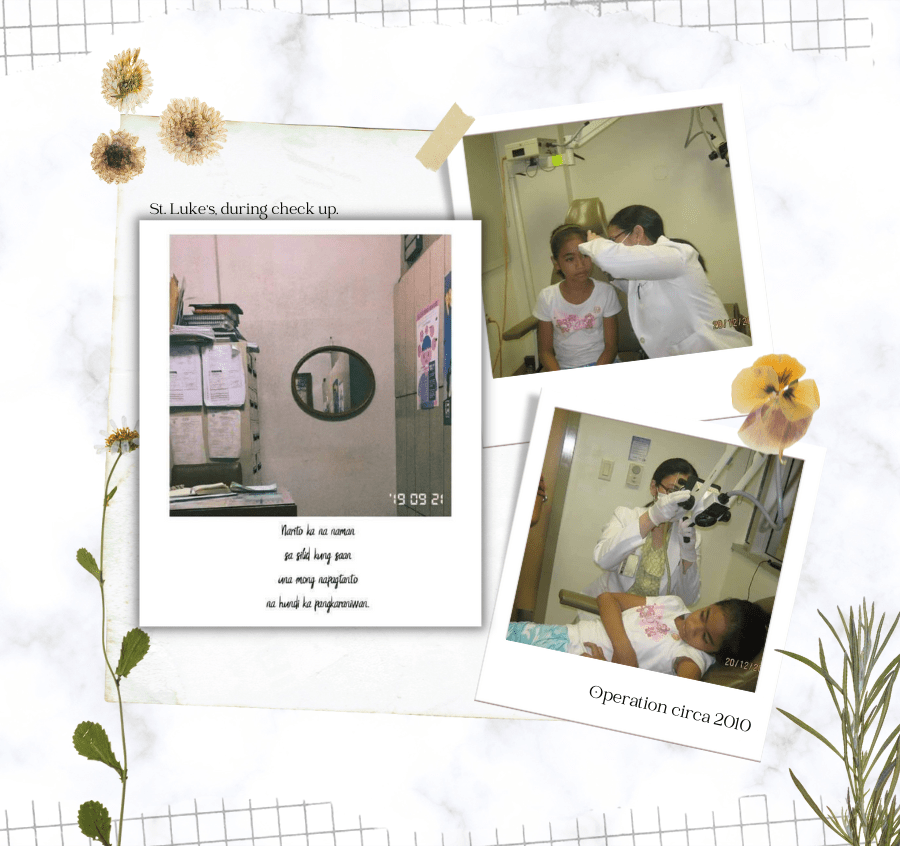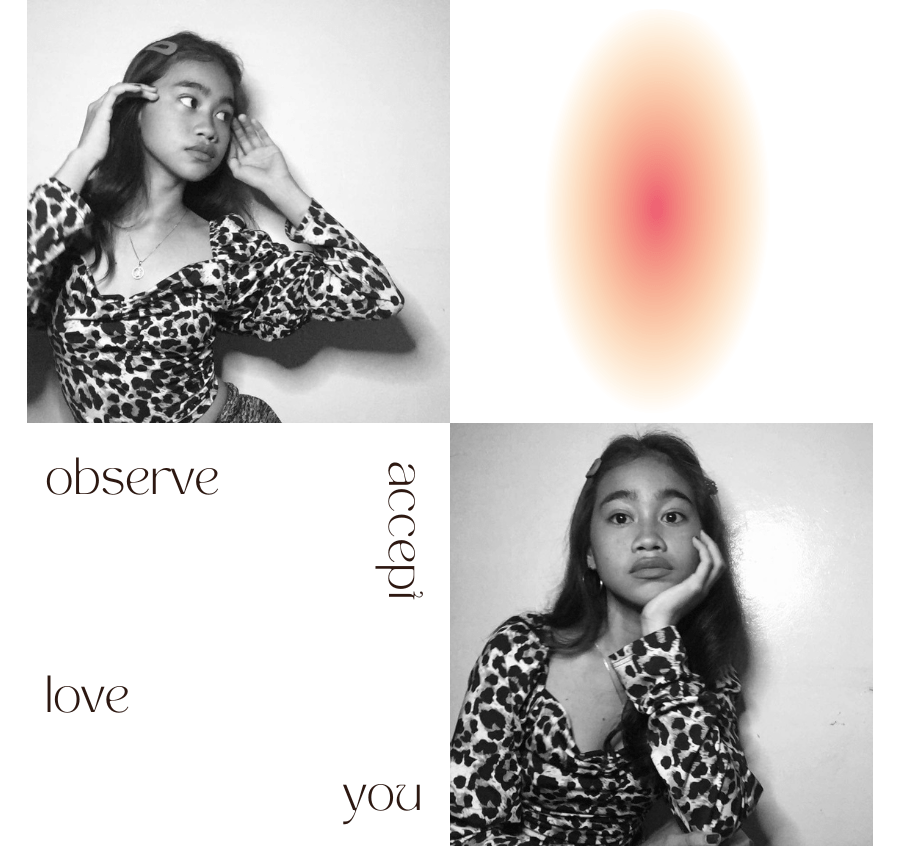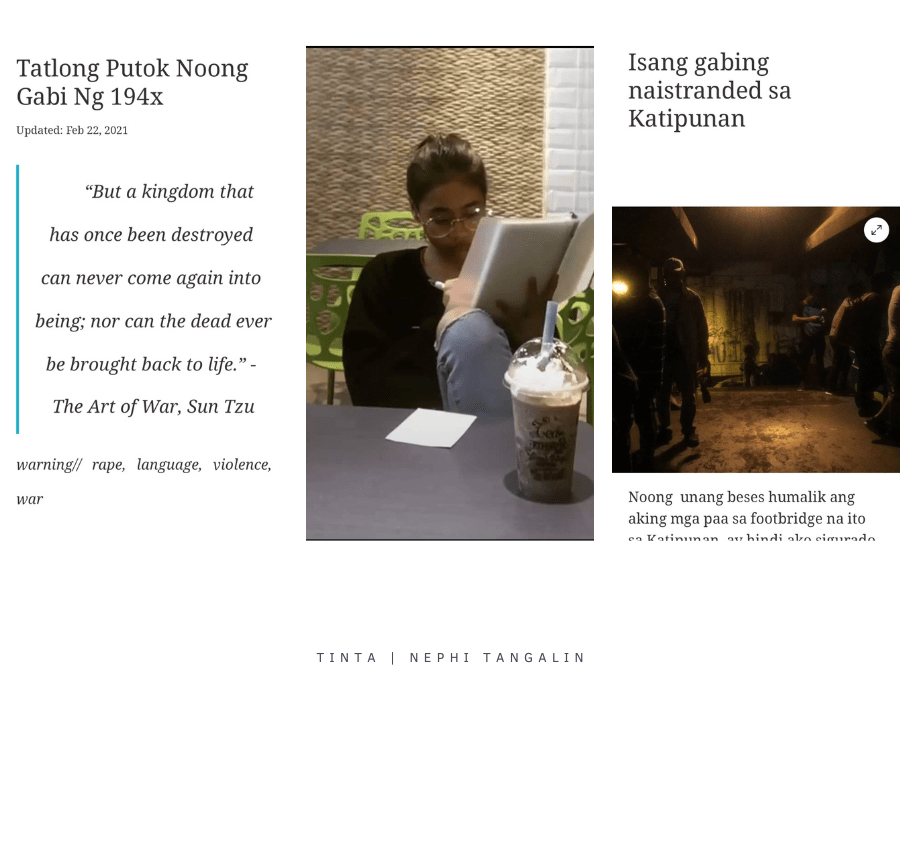In sounds and words: A writer suffering from hearing loss

The sense of hearing for a writer is what keeps her words alive. It helps her engage with reality and put it into words.
But what would happen if a writer heard no sounds anymore? The silence became deafening, yet the voices in her head screamed so loudly.
For Nephi Mae Tangalin, a 22-year-old writer who is suffering from hearing loss, writing has become her outlet to end the stigma of people with disabilities.
Suffering from Hearing Loss
Nephi was around 10 years old when she started experiencing symptoms of hearing loss. In the same year, she was diagnosed and had surgery.
People suffering from hearing loss, according to NHI (2022), find it hard to have conversations and have trouble understanding words.

As for Nephi, she shared that when she is trying to speak with people, she will have to ask them to raise their voices or repeat inaudible words.
She is aware that most of the people she’s talking with are uneducated about her condition.
At home, her family would instinctively raise their voices for her to hear them, especially when they were a little far away from her.
Nephi found their acts of kindness helpful in that they made her more gentle with herself.
“Accepting my disability is a very personal — both painful and empowering, experience for me.”
However, before she got diagnosed she experiences unjustified bullying. People made fun of her inability to hear them clearly.
Because our society does not talk about the importance of understanding and treating people with disabilities right, the stigma against them grows.
People like Nephi experience prejudices and misconceptions about their conditions, which makes it harder for them to deal with what they are going through.
“Because of structural discrimination against people with disabilities, including those with hearing loss such as myself, I am subjected to stereotypes and my medication journey is stigmatized. It’s been a constant battle up until now — a daily struggle and victories, I’ll admit. Shame, frustration, and fear may have swayed my path to radical acceptance,” she said.
But as for Nephi, the care and understanding from her friends, family, community, and institutions have helped her stand on her ground with faith and hope.

A Writer for those who are unheard
Nephi has this deep relationship with words and storytelling.
As she took a creative writing course at the University of the Philippines—Diliman, she discovered that she could write more than just gratification and escapism.

Suffering from hearing loss does not hinder her from listening to the voices of those who are in need.
She made writing an outlet to be a voice for the marginalized sector.
To be someone that could be a voice for those who are unheard in society,
“I recognized and listened to voices that I had never heard before. Then, I gave birth to stories– some were terrible, while others were okay and decent. And hoping it would strengthen the readers’ morale and amplify the voices of those who have been silenced in society, myself included. My writing isn’t always perfect and flawless, but it strives for a less cruel society.”

Nephi’s cup of tea has always been writing stories about outside of the four corners of the room.
She writes about the happenings and lives of the people in different places and communities.
“I do write about things that are comparable to my social experiences and experiences of people I do not entirely know. As someone who struggles with stereotypes and stigmas, these have become a great force for me to write profoundly– to write intentionally.”
You can read some of Nephi’s creative works at Tinta | Nephi Tangalin. She has also contributed a piece to her college publication’s KALasag, a poetry contest she joined, and the work she wrote about struggling with depression.
The Essence of being a writer
For Nephi, being a writer does not mean sitting and just writing in her comfort zone.
A writer, for her, is someone who goes out to four corner rooms and sees for herself the stories in reality that must be told to make a difference for a better society.
“Lumalabas ang manunulat sa apat na sulok ng kaniyang tahanan (e.g. comfort zone), o anumang depinisyon niya ng tahanan, at natututo, liban sa teknikal na usapin, sa danas ng mga tao sa kasaysayan at kasalukuyan. Bukod sa sumulat, ang halaga ng manunulat ay lagi’t laging nakadikit sa kaniyang kapasidad na mamulat at umambag sa pag-unlad ng bayan.”

Nephi is currently working on her undergrad thesis, which is a picture book.
However, she is not sure if she will be able to publish and print it because of how expensive it would cost.
Nevertheless, Nephi hopes one day that her book will reach children across the country, especially those who need it.
Resounding rotten system
As Nephi suffers from hearing loss and stigma, it is writing that helps her understand herself, the people around her, and society as a whole.
Writing became a companion in her journey towards radical acceptance and healing and led her to a beautiful conclusion.
“Having a disability, such as hearing loss, is not something that can be cured or conquered. Some of us may not acknowledge it, but people with disabilities are mostly victims of human rights violations.”
It is writing about her and other people’s experiences that made her realize that people do not suffer from disabilities but from social structures.
Likewise, Nephi sees that it is the system that makes it impossible for people with disabilities to participate in and contribute to society.
Moreover, these all boil down to layers of stereotypes and stigmas.
Writing allows Nephi to ponder and grieve,
“It has helped me realize that the fight for radical acceptance and healing is more than just writing; the fight should not end with writing. As a collective movement, we should extend compassion, patience, understanding, love, acceptance, and healing to those around us, while also addressing the problems [through the help and initiative of the government and institutions] induced by today’s world order.”
It is her writing that allows her to hear important matters and to speak for those who are voiceless.
The sound of her words
Nephi has been very vocal about her condition and about promoting a safe community for people like her.
She has a purpose for including people with disabilities in society.
To give them the support they need, the acceptance, and the right to live without discrimination.
And for aspiring writers suffering from disabilities, her message is,
“Always explore what keeps the “unsaid” unsaid and the “unheard” unheard, and I hope it will lead you to righteous rage, radical dreaming, profound healing, and meaningful contribution to the lives of those around you.”
Listen and be the voice
People with disabilities have been fighting ever since to end the stigma that disables them from living a life that gives them equal opportunities, protection, and medical help.
Nephi is just one of those people who has used their talent for writing to send us a message that they should not be left behind.
After all, the people who are suffering from hearing loss are those who are responsible for making society better but refuse to do so by not listening to the pleas of the marginalized sector.
For those of us who can clearly hear, let us listen and amplify the voices of those who are in need.
Nica is a resin artist, watercolor painter, and writer. She loves putting art into life because it feels liberating. She believes that the most powerful form of art is through words, for it can set us free. Her life is sweeter than fiction because of Taylor Swift’s music, fur babies, and chick flick movies.





